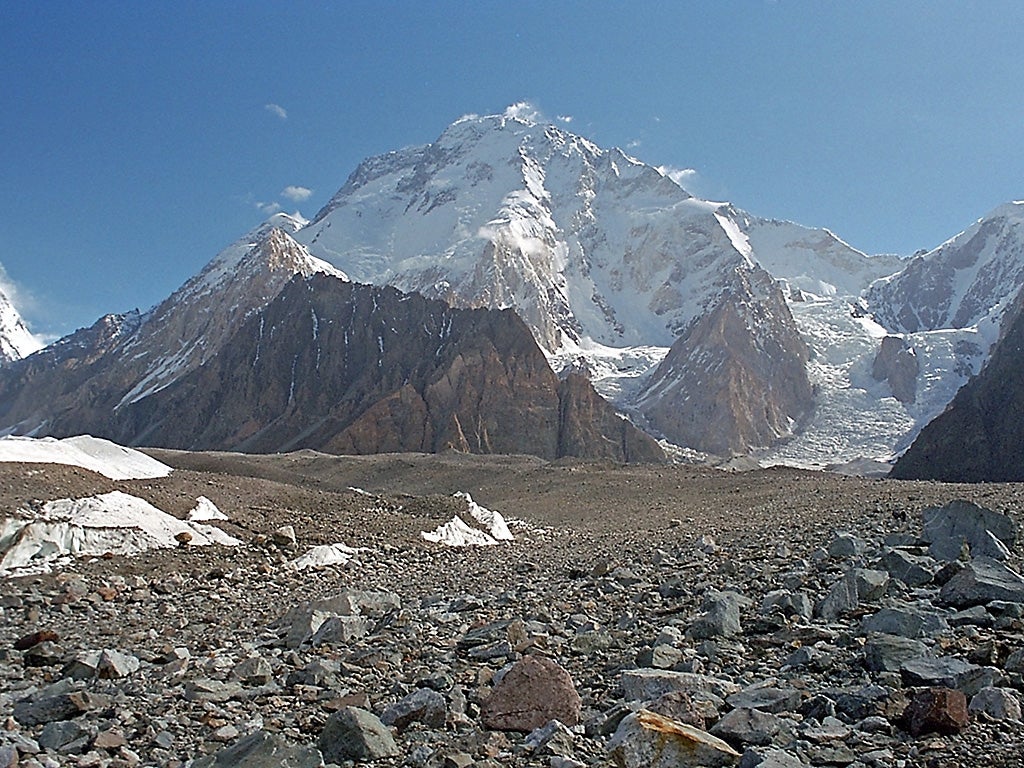British climber presumed dead is rescued after being spotted by drone in Himalayas
Rick Allen's rucksack was seen by a base camp cook after the climber fell from an ice cliff – the drone was later deployed

Your support helps us to tell the story
From reproductive rights to climate change to Big Tech, The Independent is on the ground when the story is developing. Whether it's investigating the financials of Elon Musk's pro-Trump PAC or producing our latest documentary, 'The A Word', which shines a light on the American women fighting for reproductive rights, we know how important it is to parse out the facts from the messaging.
At such a critical moment in US history, we need reporters on the ground. Your donation allows us to keep sending journalists to speak to both sides of the story.
The Independent is trusted by Americans across the entire political spectrum. And unlike many other quality news outlets, we choose not to lock Americans out of our reporting and analysis with paywalls. We believe quality journalism should be available to everyone, paid for by those who can afford it.
Your support makes all the difference.A world-renowned British climber has been rescued from one of the world’s highest mountains after being spotted by a drone in the Himalayas.
Rick Allen, from Aberdeen, was presumed dead after falling from an ice cliff during a solo climb to the summit of Pakistan's Broad Peak (8,047m), the 12th highest mountain on Earth.
His rucksack was later spotted by a base camp cook, before a drone was used to locate him and guide rescuers to the 65-year-old’s location.
After being brought back to base camp with nothing more than “superficial cuts and frostnip”, he was flown by helicopter for further treatment.
Mr Allen and his climbing partner, Sandy Allan, were with a team of climbers in the Himalayas, but decided to turn back before the summit of Broad Peak due to high winds.
“He is a tough and strong willed man and also incredibly lucky that a cook and then the drone spotted him,” Mr Allan told the BBC. "We were convinced he was dead. He's my best high altitude climbing pal."
Early reports said Mr Allen had been reported dead by members of his team, who had found his satellite phone and descended to base camp after the Scot attempted a solo attempt for the summit on 9 July.
David Roeske, one of the climber’s involved in the rescue, said Mr Allen had been alone on the mountain for 36 hours until a Japanese cook spotted a rucksack in the distance on the mountain. A drone was subsequently launched and spotted him still moving.
“With the help of the drone pilot we were able to eventually locate him in very dangerous terrain – a fall would’ve taken him either down a crevasse or all the way to the base of the mountain,” he told climbing website AlanArnette.com.
Mr Roeske and a team of climbers brought Mr Allen down to one of the mountain’s camps just as it was getting dark, before he was taken down to base camp on 12 July.
He was later evacuated for treatment to frozen toes – the mountaineer lost half of a big toe to frostbite during an earlier expedition.
In 2012, Mr Allen and Mr Allan completed what was then described as the last great unclimbed route in the Himalayas; a trip which Mr Allen said left him “absolutely skeletal” after running out of food during the descent.
Join our commenting forum
Join thought-provoking conversations, follow other Independent readers and see their replies
Comments